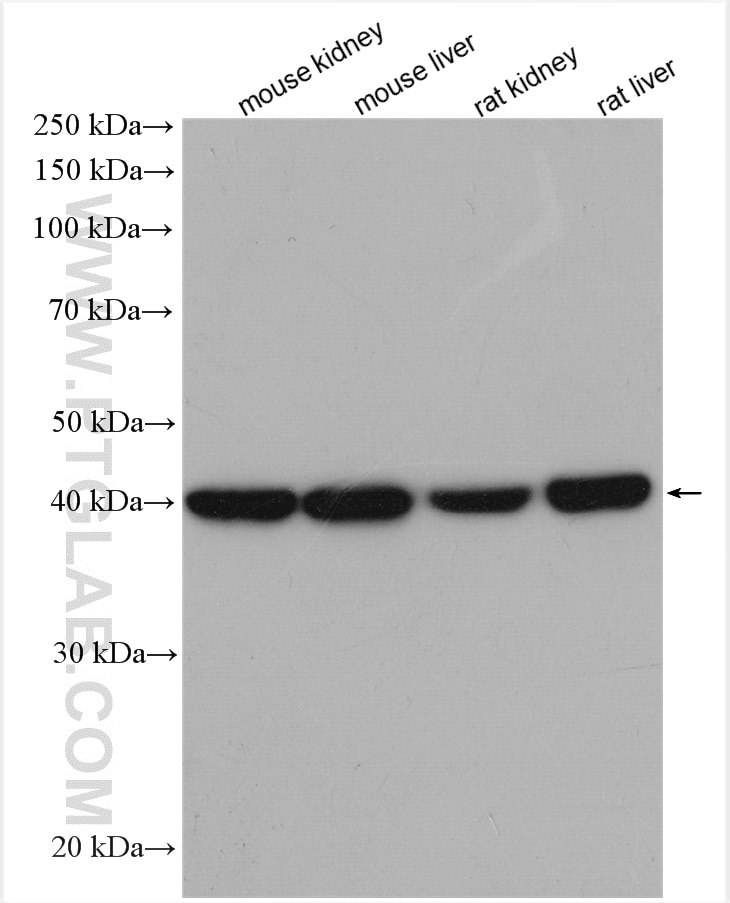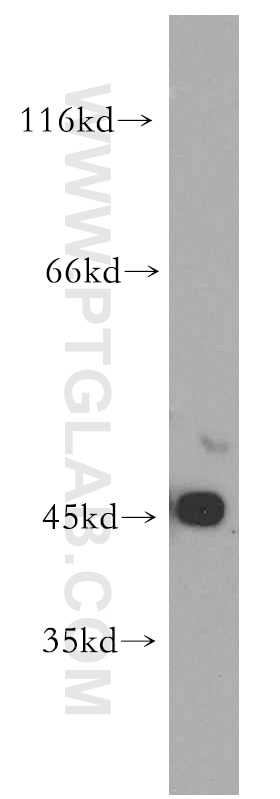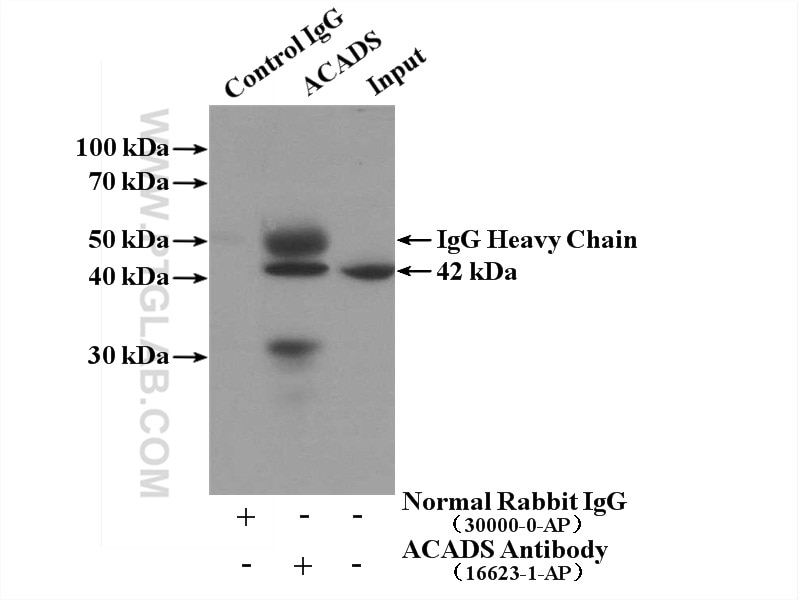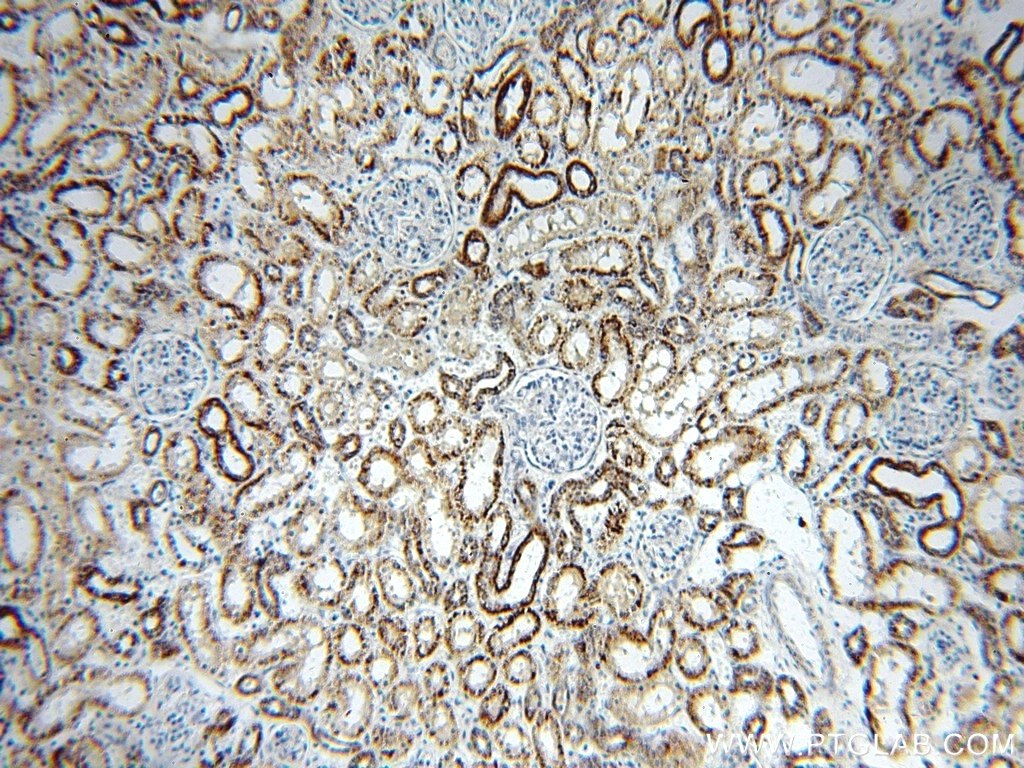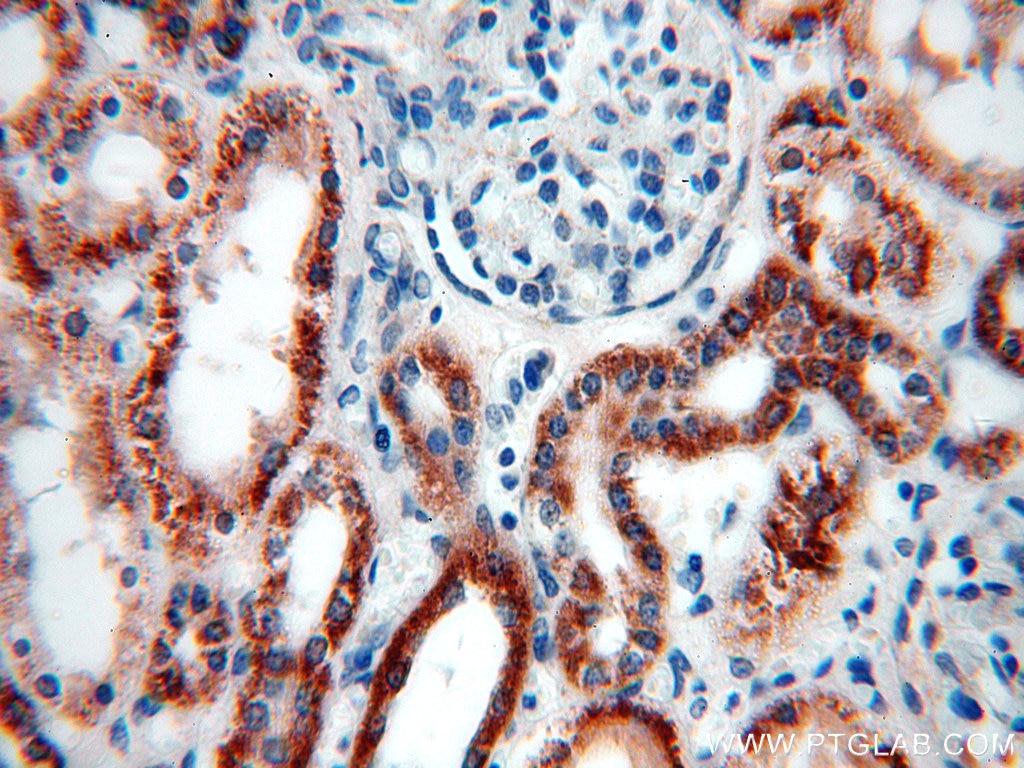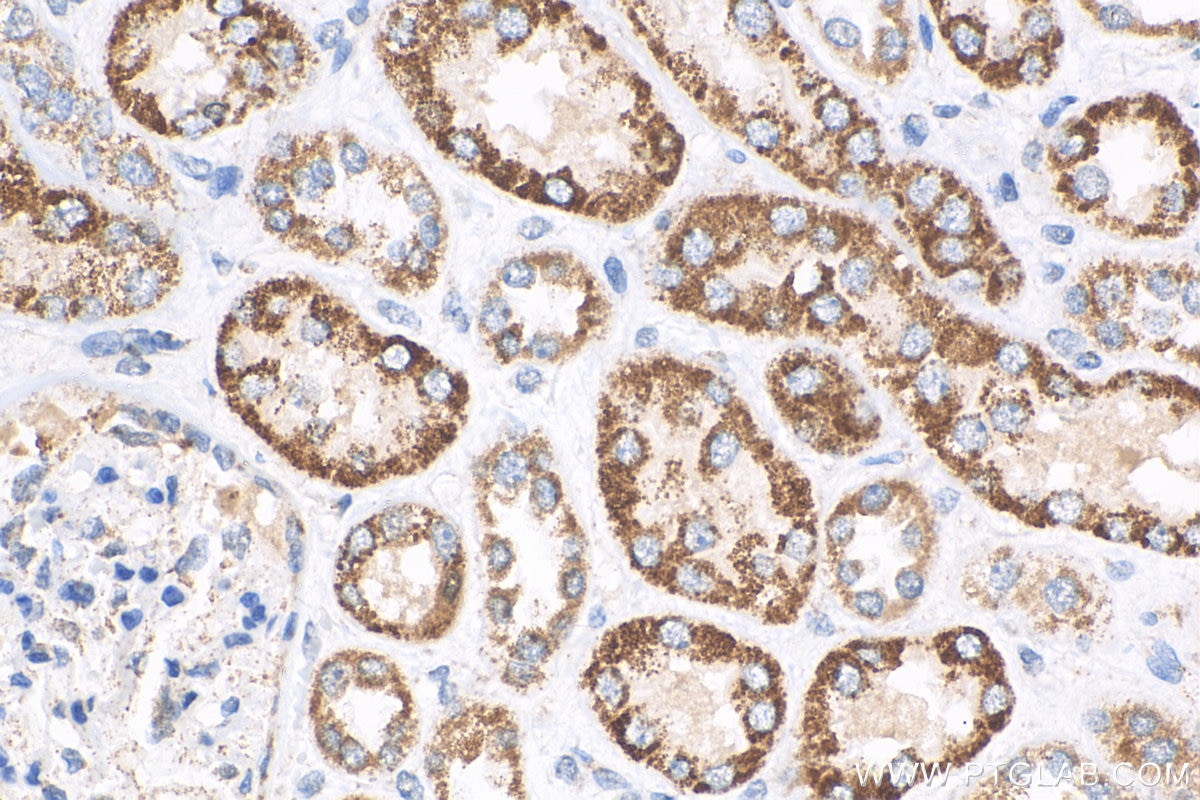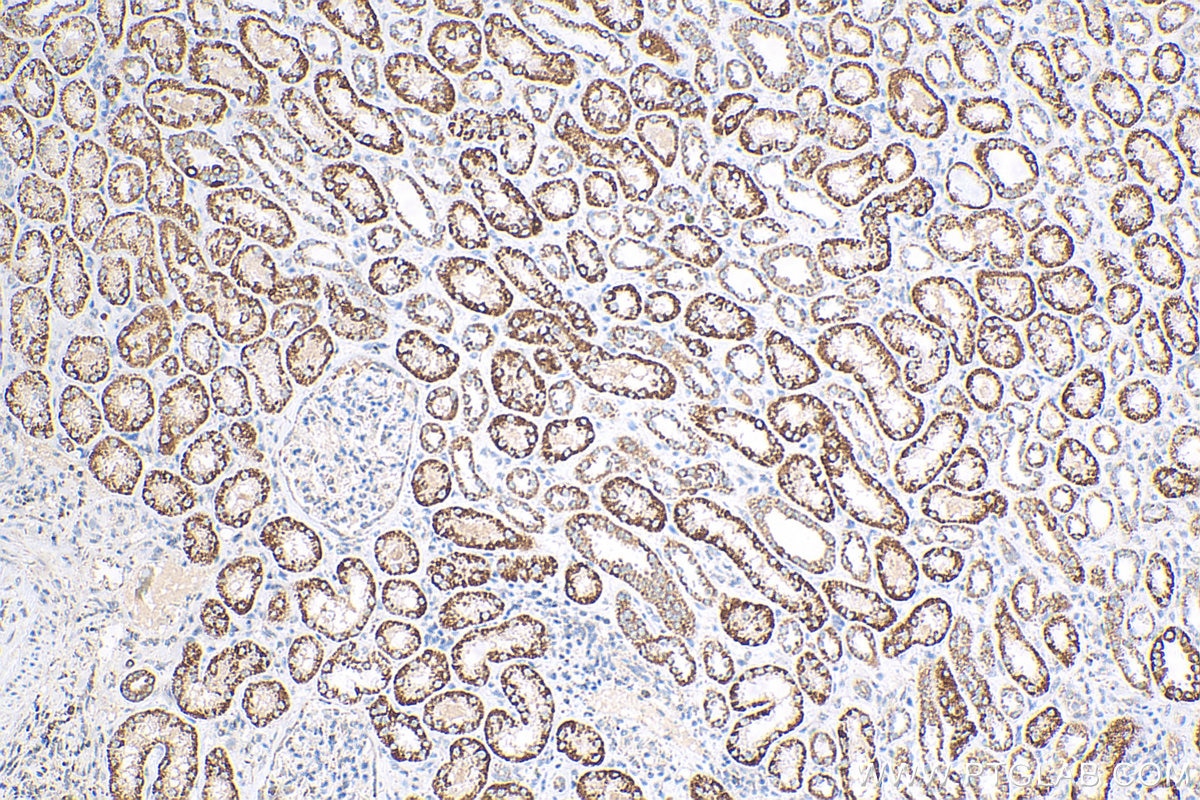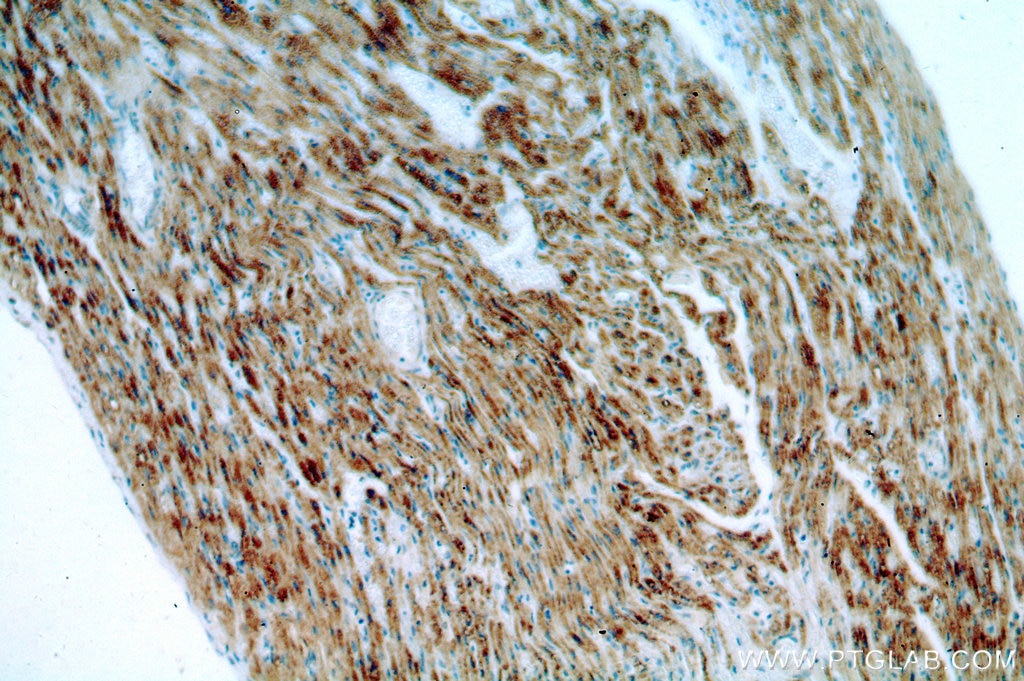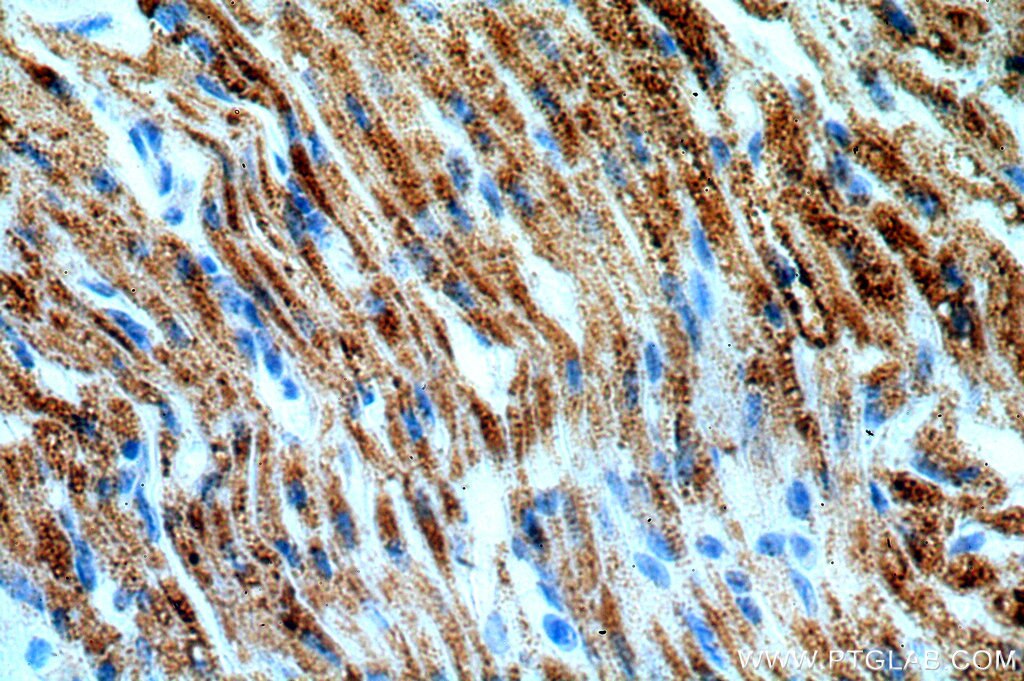- Phare
- Validé par KD/KO
Anticorps Polyclonal de lapin anti-ACADS
ACADS Polyclonal Antibody for WB, IP, IHC, ELISA
Hôte / Isotype
Lapin / IgG
Réactivité testée
Humain, rat, singe, souris
Applications
WB, IP, IF, IHC, ELISA
Conjugaison
Non conjugué
N° de cat : 16623-1-AP
Synonymes
Galerie de données de validation
Applications testées
| Résultats positifs en WB | tissu rénal de souris, cellules COS-7, tissu hépatique de rat, tissu hépatique de souris, tissu rénal de rat |
| Résultats positifs en IP | cellules HEK-293 |
| Résultats positifs en IHC | tissu rénal humain, tissu cardiaque humain il est suggéré de démasquer l'antigène avec un tampon de TE buffer pH 9.0; (*) À défaut, 'le démasquage de l'antigène peut être 'effectué avec un tampon citrate pH 6,0. |
Dilution recommandée
| Application | Dilution |
|---|---|
| Western Blot (WB) | WB : 1:1000-1:4000 |
| Immunoprécipitation (IP) | IP : 0.5-4.0 ug for 1.0-3.0 mg of total protein lysate |
| Immunohistochimie (IHC) | IHC : 1:20-1:200 |
| It is recommended that this reagent should be titrated in each testing system to obtain optimal results. | |
| Sample-dependent, check data in validation data gallery | |
Applications publiées
| KD/KO | See 1 publications below |
| WB | See 16 publications below |
| IF | See 2 publications below |
| IP | See 1 publications below |
Informations sur le produit
16623-1-AP cible ACADS dans les applications de WB, IP, IF, IHC, ELISA et montre une réactivité avec des échantillons Humain, rat, singe, souris
| Réactivité | Humain, rat, singe, souris |
| Réactivité citée | rat, Humain, souris |
| Hôte / Isotype | Lapin / IgG |
| Clonalité | Polyclonal |
| Type | Anticorps |
| Immunogène | ACADS Protéine recombinante Ag9922 |
| Nom complet | acyl-Coenzyme A dehydrogenase, C-2 to C-3 short chain |
| Masse moléculaire calculée | 412 aa, 44 kDa |
| Poids moléculaire observé | 42 kDa |
| Numéro d’acquisition GenBank | BC025963 |
| Symbole du gène | ACADS |
| Identification du gène (NCBI) | 35 |
| Conjugaison | Non conjugué |
| Forme | Liquide |
| Méthode de purification | Purification par affinité contre l'antigène |
| Tampon de stockage | PBS avec azoture de sodium à 0,02 % et glycérol à 50 % pH 7,3 |
| Conditions de stockage | Stocker à -20°C. Stable pendant un an après l'expédition. L'aliquotage n'est pas nécessaire pour le stockage à -20oC Les 20ul contiennent 0,1% de BSA. |
Informations générales
ACADS is also named as SCAD(Short-chain specific acyl-CoA dehydrogenase, mitochondrial) and belongs to the acyl-CoA dehydrogenase family. It is a tetrameric mitochondrial flavoprotein. It is synthesized as a 44 kDa precursor, transported into mitochondria, and proteolytically processed to its 41 kDa mature form. Acyl-CoA de- hydrogenases (ACADs) are a family of flavoproteins that are involved in theβ-oxidation of the fatty acyl-CoA derivatives.
Protocole
| Product Specific Protocols | |
|---|---|
| WB protocol for ACADS antibody 16623-1-AP | Download protocol |
| IHC protocol for ACADS antibody 16623-1-AP | Download protocol |
| IP protocol for ACADS antibody 16623-1-AP | Download protocol |
| Standard Protocols | |
|---|---|
| Click here to view our Standard Protocols |
Publications
| Species | Application | Title |
|---|---|---|
Cell Res Hypoxia induces mitochondrial protein lactylation to limit oxidative phosphorylation | ||
Cell Metab Targeting Erbin-mitochondria axis in platelets/megakaryocytes promotes B cell-mediated antitumor immunity | ||
EMBO Rep Lin28 enhances de novo fatty acid synthesis to promote cancer progression via SREBP-1. | ||
Cell Rep HIF-1-Mediated Suppression of Acyl-CoA Dehydrogenases and Fatty Acid Oxidation Is Critical for Cancer Progression. | ||
Aging (Albany NY) ACADS acts as a potential methylation biomarker associated with the proliferation and metastasis of hepatocellular carcinomas.
| ||
